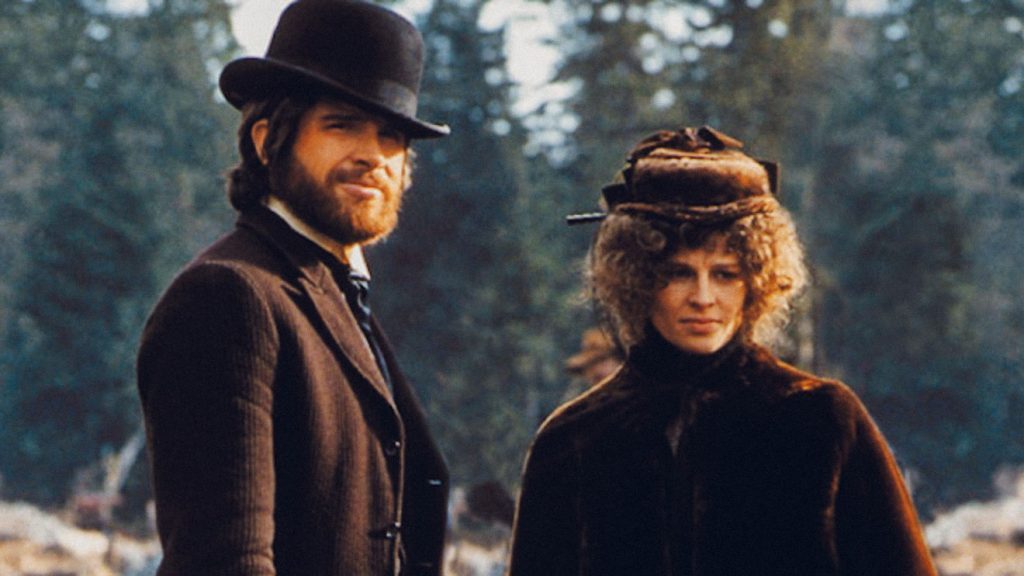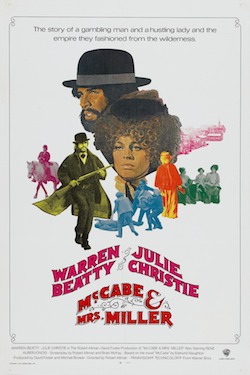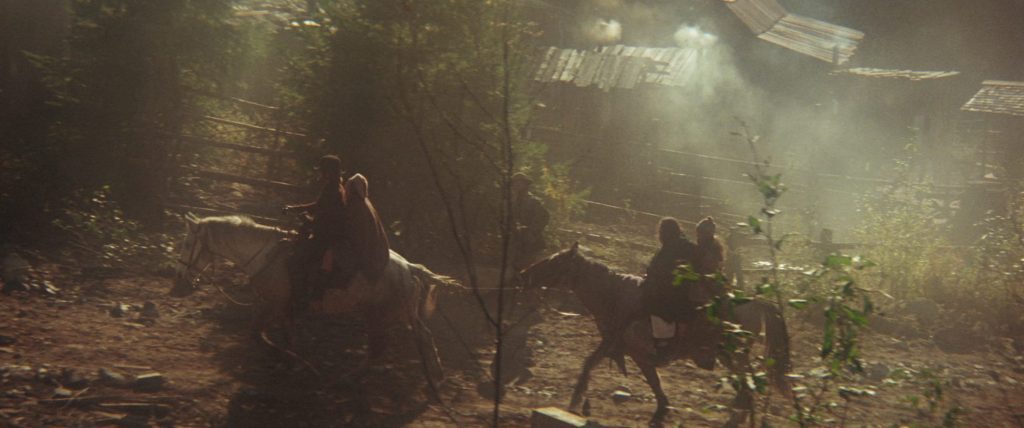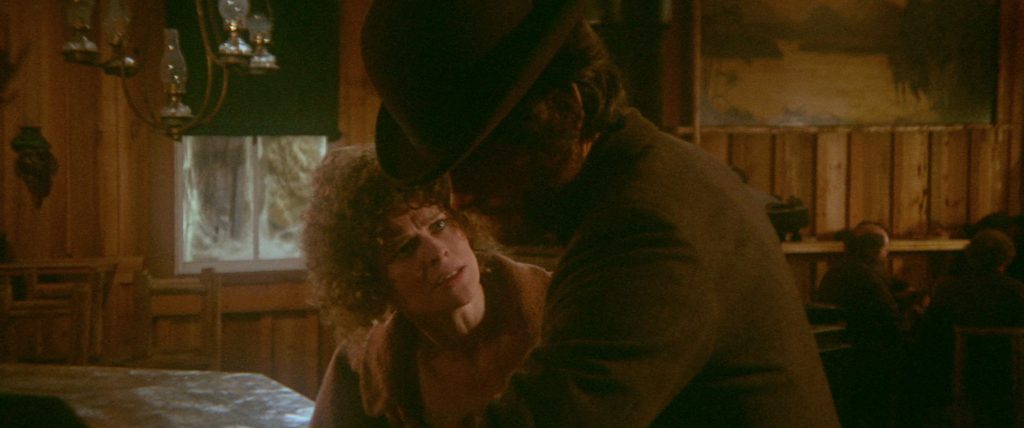
McCabe & Mrs Miller (USA, 1971) 121 min color DIR: Robert Altman. PROD: Mitchell Brower, David Foster. SCR: Robert Altman, Brian McKay, Robert Towne, Joseph Calvelli; based on the novel by Edmund Naughton. MUSIC: Leonard Cohen. DOP: Vilmos Szigmond. CAST: Warren Beatty, Julie Christie, René Auberjonois, Michael Murphy, Antony Holland, Bert Remsen, Shelley Duvall, Keith Carradine, Hugh Millais, Jace Van Der Veen, Manfred Schulz, Corey Fischer, William Devane, John Schuck. (Warner Bros.)

During his nearly unbroken streak of 1970s cinematic masterpieces, director Robert Altman made several films which explored (and upturned) genre conventions. With McCabe, he created one of the most original and daring westerns of its decade. This picture is one of the most un-Hollywood “studio films” ever produced, and certainly one of the most experimental, which nearly gave coronaries to studio execs, and caused a massive headache for his star, Warren Beatty. Although the actor was simply looking for a movie project to work on with his then-girlfriend Julie Christie, one wonders what he expected by hiring Altman, who, even one year after the runaway success of M*A*S*H, was already established as someone with a unique vision, and who would not follow orders. Well, if Beatty truly expected simply a “star vehicle” with Altman at the helm, then he got what he deserved.
Pretty boy Beatty has to emote from behind a derby and a bushy beard, and the ethereal Julie Christie has a bunch of gold teeth rammed in her mouth. In addition to rendering his two stars unrecognizable, Altman had cinematographer Vilmos Zsigmond “flash” the film stock (meaning to quickly expose it to light before use), so that the visuals would attain a washed out quality, approximating the look of historical photographs. The visuals become as muddily obscure as the narrative, further given an unusual texture by Altman’s odd choice to score the film with songs by Leonard Cohen.
As is typical of Altman’s ensemble films, McCabe & Mrs. Miller do not necessarily take precedence in the story: theirs is one thread among many. It is only fitting that these A-list actors, shown at their least flattering, get lost among those other fascinating Altman faces and Zsigmond’s hazy cinematography. The opening scene, featuring a card game inside a saloon, is so dark, that the characters are indistinguishable and it is near impossible to tell who exactly is uttering the dialogue at any time. But soon your eye adjusts to the screen just as it would to an unlit room in the middle of the night, and you realize that Altman has created a beautiful film about a dank, drab existence on the frontier. His stylistic approach supersedes any other effort to portray frontier life at its most natural. Filmed in a wintry British Columbia, Altman’s West really feels “lived in”; his gallery of unusual, unglamourous faces evoke stories of hardship.


Like many 1970s Westerns, this has an interesting subplot where big business moves into the Old West. First, entrepreneur McCabe and madam Miller enjoy a successful partnership in peddling female services to the male-centric prospecting town. Before long, some dude businessmen decide to get in on the action. You know that commerce is bad, because after all, Michael Murphy plays one of them. McCabe is part of what I refer to as “the apocalyptic western”: films produced at the time, which seem to be the exclamation point on the death of the frontier. The Wild Bunch runs out of badlands, the mythic gunfighter disappears due to the railroad in Once Upon a Time in the West, and the wild and woolly West of McCabe gets tamed by the so-called civilized East. This seeming paradise of free love (not free in the monetary sense) gets corrupted when the dude sharpies bring violence into the fold to get their way (as seen the horrific scene where Keith Carradine’s young cowboy gets gunned down at the rope bridge). Altman’s film however differs from the others cited above, in that these characters are not “larger than life”: they fall from grace with less of a thud than the Goliaths in Sam Peckinpah or Sergio Leone. Instead, McCabe gets covered in snow, and Mrs. Miller disappears behind opium smoke, while history shrugs and moves on.
